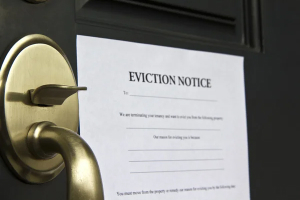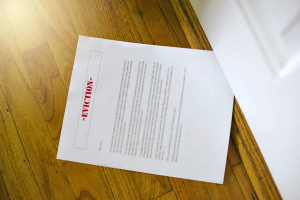
San Francisco, a bustling city with diverse residents, faces challenges in housing. The limited space and high demand for housing make eviction a key concern. Knowing the reasons for eviction helps tenants protect their rights. Moreover, understanding the legal grounds for expulsion ensures a fair process for everyone.
For landlords, evictions might be a last resort, but it can mean losing a home for tenants. In San Francisco, with its unique housing laws, both parties need to be aware. As the city grows, so do the regulations governing evictions.
At Halavanau Injury and Accident Law, an eviction notice can be stressful. Your rental unit is your home, and the San Francisco Rent Board spells out your rights.
San Francisco is unlike any other city in the U.S. Its distinct culture and laws reflect its diversity. Yet, its unique position also means complex eviction rules. For tenants, understanding these reasons can mean the difference between staying in a home or being kicked out. Not every eviction is a just cause under the San Francisco Administrative Code.
In fact, landlords must strictly adhere to eviction rules. Wrongful eviction can result in significant penalties unless landlords follow the specific rules and procedures and the intent for the eviction is valid and legal.

A. Explanation of No-Cause Evictions
As the name suggests, no-cause evictions are when landlords evict tenants without a specific reason. This means landlords don't need to give an excuse like rent non-payment. It's essential, however, that such evictions are done lawfully. No-cause evictions are often controversial, as they seem unfair to tenants under the rent ordinance.
B. Prevalence of No-Cause Evictions in San Francisco
In San Francisco, no-cause evictions have been a hot topic. The high demand for housing means landlords might prefer new tenants at higher rents. This often leaves long-time residents at risk. Advocacy groups continuously monitor and challenge unfair no-cause evictions. There are eviction protections in place.
C. Legal Regulations Surrounding No-Cause Evictions
San Francisco has rules restricting no-cause evictions. For example, certain tenant protections exist under San Francisco's Rent Ordinance. Landlords must follow strict guidelines for removals, and if the property is subject to rent control, only “just cause” evictions are allowed if the landlord follows specific steps. There is a specific list of “just cause” evictions outlined in the ordinance, and the eviction has to fall within one of the listed categories to be valid.
A. Overview of Non-Payment of Rent as a Common Eviction Reason
Not paying rent is a leading reason for eviction. Tenants are contractually obligated to pay rent. If they don't, landlords can start the eviction process. Tenants need to communicate any issues they face in making timely payments.
B. Legal Procedures for Handling Rent Non-Payment
Before evicting, landlords must give a 3-day notice to pay rent or quit in California. Landlords can file for eviction if tenants don't pay within this period. Always refer to California Civil Code 1946 and 1947.2 for specifics. Following the legal steps ensures the rights of both parties are upheld.
C. Rent Control Laws and Their Impact
San Francisco's rent control laws protect certain tenants from sudden rent hikes and contain other protections. These laws cover certain older buildings. So, while many benefit from rent control, others face the brunt of San Francisco's skyrocketing rent prices.

Lease violations are another reason for evictions. When tenants sign a lease, they agree to its terms. Breaking these terms can result in removal. Common violations include having pets when not allowed or making unauthorized changes to the property. Nuisance or substantial interference can also lead to an expulsion.
Many lease violations can lead to eviction. Some are minor, like painting walls without permission. Others are more severe, like running a business from a residential property. Understanding these violations can help tenants avoid eviction. It also guides landlords on when eviction is justified.
Common violations also include subletting without permission. In San Francisco, where housing is in demand, subletting is tempting. Doing so without the landlord's consent can lead to trouble. Both parties should always refer to the lease agreement as their guiding document.
Smoking in a non-smoking building is a lease violation. So is excessive noise, especially in a city as dense as San Francisco. Unauthorized pets can also cause issues. And remember, not all violations are about what you bring in—failing to maintain the unit can also be a breach.
Another frequent violation is failing to inform about significant damage. For example, a broken window or plumbing issues. Delaying repairs can worsen problems, costing more in the end. Always keep an open line of communication with landlords.
When a dispute arises, resolution can be achieved without eviction. Open communication between the tenant and landlord is crucial. Both parties can discuss concerns and find solutions. This can include mediation or setting new terms in the lease.
Legal representation can also help in dispute resolution. An experienced lawyer understands San Francisco's housing laws. They can guide both landlords and tenants toward an amicable solution. Remember, eviction is a last resort—everyone should find common ground.
A. Explanation of Owner Move-in Evictions
Owner move-in evictions occur when landlords or their close family members want to move into their rental property. The landlord may wish to permanently remove the rental unit from housing use on the rental market. This means the tenant must vacate. It's a lawful reason for eviction but has strict guidelines. It can't be used as an excuse to evict for other reasons, which certainly occurs in San Francisco when some landlords are trying to rent the property at market price.
B. Legal Requirements and Restrictions
Landlords can't misuse owner move-in evictions. The landlord or their close relatives must genuinely intend to live in the unit for at least 36 months. Under the San Francisco Rent Ordinance, violating this rule can lead to penalties. Always ensure the eviction is in good faith.
C. Tenant Rights and Compensation
Evicted tenants have rights, too. They may be entitled to relocation payments. Moreover, senior, disabled, or catastrophically ill tenants have added protections. Always check with a lawyer to understand your rights thoroughly.

A. Definition and Purpose of the Ellis Act
The Ellis Act is a California law allowing landlords to exit the rental business. They can evict tenants to "go out of business." However, they must wait to rent the units again. There's a waiting period, ensuring the act isn't misused, and some other complex requirements.
B. Circumstances in Which Ellis Act Evictions Occur
Landlords might use the Ellis Act for various reasons. They might want to sell the property or face financial hardship. It's not about evicting a particular tenant but rather about no longer renting out any units for certain reasons.
Units must be safe and livable. If not, tenants can raise concerns or file a lawsuit when the problems are pervasive. When repairs aren't addressed, tensions rise. Substantial rehabilitation might be needed. Or, the landlord might need the tenant to leave to perform capital improvements or rehabilitation to the unit.
In severe cases, uninhabitable conditions can lead to construction eviction. In contrast, tenants move out because the habitability issues are so severe that they present a health risk to continue living in the dwelling, for example. In such a case, the tenant may file a lawsuit after moving out for breach of the rental agreement and constructive eviction against the landlord.
Tenants deserve safe living conditions. If a unit has issues like leaks or pests, landlords must address them. Tenants can request repairs, and if ignored, they can take legal action. It's essential to know your rights and ensure your home is habitable.
In San Francisco, tenants have strong rights. The San Francisco Rent Board offers guidance on habitability concerns. They can guide tenants on how to address issues. Always stand up for your right to a safe home.
When facing habitability issues, communication is vital. Inform your landlord in writing of your habitability concerns. If the problems persist, you can contact the Rent Board. They'll guide you on the next steps.
Remember, you shouldn't withhold rent without legal advice. Doing so can lead to eviction for non-payment. Always follow the law and get guidance when unsure. Your safety and well-being are paramount.
Sometimes, tenants cause significant damage. This can lead to eviction. Accidents happen, but failure to address or report damage can be a lease violation. Always communicate with your landlord if an accident occurs.
Being responsible and understanding your lease terms can prevent negative outcomes.

A. Definitions and Examples of Nuisance or Illegal Activity
Nuisance can be a constant loud noise, harassment, or illegal activities like drug dealing. Such behaviors disrupt the community and can be grounds for eviction. It's essential to respect others and abide by the law.
B. Landlord's Obligations To Address These Issues
Landlords must ensure a safe environment for all tenants. If a tenant causes problems, the landlord must address them. This can involve warnings or, in severe cases, eviction. Following the legal process ensures fairness and safety for all.
C. Eviction Process for Such Cases
If nuisance or illegal activity is proven, eviction can proceed. Landlords must give a 3-day notice to correct the behavior or leave. Please refer to California Civil Code 1946 for specifics. Both parties should understand the process and their rights.
As always, if the landlord is trying to evict for an improper reason, such as re-renting the unit at a higher price under the pretext of the tenant violating leasing provisions, the tenants should seek legal advice to protect their rights.
A. Explanation of Retaliatory Evictions
Retaliation evictions happen when landlords evict tenants for asserting their rights. For example, if a tenant requests repairs or complaints to a Building Department regarding habitability issues and then faces eviction, it might be retaliatory. Such evictions are illegal.
B. Legal Protections Against Retaliatory Evictions
Tenants have protections against such evictions. California law, especially California Civil Code 1942.5, prohibits retaliatory evictions. Tenants can take legal action if they face such retaliation.
C. Reporting and Addressing Retaliatory Actions
If you suspect a retaliatory eviction, act immediately. Document everything. Contact a lawyer or the Rent Board. They can help protect your rights or guide you through the process.
Facing eviction or dealing with an uncooperative landlord can be stressful and overwhelming. But you don't have to face it alone. Our San Francisco eviction lawyer at Halavanau Injury and Accident Law can guide you. We understand the city's unique laws and can advocate for your rights.
Our experience in San Francisco housing laws sets us apart. Whether you're a tenant or a landlord, we offer expert advice. Navigating the eviction process becomes easier with us by your side. Let us help you ensure fairness and justice in your eviction case.

When eviction looms, every minute counts. Getting the right legal advice can make all the difference. Our San Francisco eviction lawyer is ready to help. Don't hesitate to contact us. At Halavanau Injury and Accident Law, your needs always come first, and we would be honored to help you.
Protecting your rights is paramount. Trust in our expertise. Let us guide you through San Francisco's complex eviction landscape. Contact us today.
Schedule Your
Free Consultation
Request Your Free
Confidential Consultation